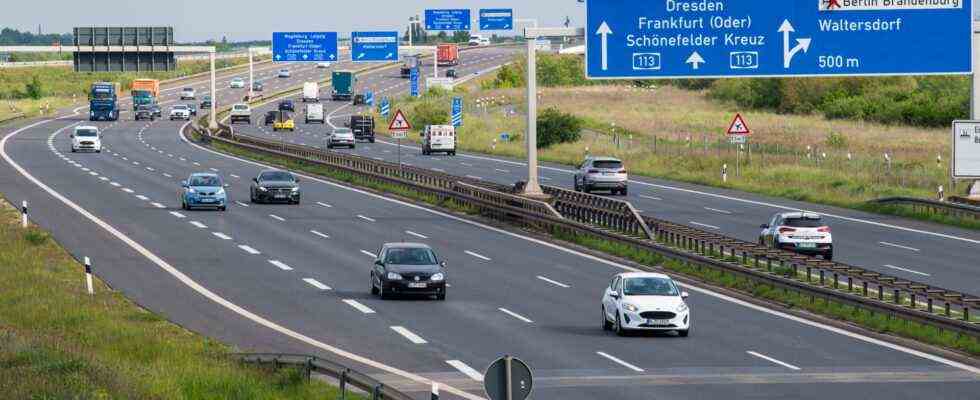Status: 01/31/2022 11:27 am
Modern vehicles collect millions of pieces of data that are in great demand by corporations, insurance companies and authorities. The federal government is planning a data trustee – which the manufacturers criticize.
The federal government is encountering resistance from manufacturers with its plan for a trustee for car data. According to the will of the traffic light parties, such a trustee should guarantee the sovereignty of car owners over the wealth of data generated by their vehicles. In addition, it should offer data access for authorities, insurance companies, TÜV and car repair shops.
The Association of the Automotive Industry (VDA) fears additional bureaucracy as well as abuse as a result of the trustee concept: “The VDA rejects the so-called trustee model for the transmission of data because we believe it has various disadvantages,” said VDA Managing Director Joachim Damasky.
The dispute is about a multitude of conflicting interests and open questions: from car repairs to the development of new business models. This includes the availability of car data for accident investigation as well as the question of whether car manufacturers and suppliers will be forced to share the fruits of their software development with third-party companies in the future.
The coalition agreement between the SPD, Greens and FDP states: “For the competitively neutral use of vehicle data, we are striving for a trustee model that appropriately takes into account the access needs of users, private providers and state bodies as well as the interests of affected companies and developers.” Details of the plans are not yet known.
Insurers want post-accident access
The car data trustee has been discussed for years, largely initiated by Allianz, the largest German insurer. First of all, Allianz and the insurance industry are concerned with unhindered data access after damage and accidents: “It is important that it is not a market participant,” says Christoph Lauterwasser, head of the Allianz Center for Technology (AZT), about the planned trustee. “When it comes to accident clarification or product liability, for example, the data trustee should not be an insurance company, a car manufacturer, or anyone else who is actively involved in these issues, but a neutral body.”
The insurance association GDV requires its member companies to have access rights to car data, but has not committed itself to a specific model. “Data from networked cars does not belong to the manufacturers,” said GDV general manager Asmussen – they belong in the hands of the owners. “Whether such competition-neutral access to the data takes place via a trustee model or in some other way is of secondary importance.”
counter-proposal of the manufacturer
According to VDA Managing Director Damasky, the automotive industry is basically ready to share the data generated in the vehicle. “We want to make the vehicle data accessible to third parties, but at the same time ensure that it cannot be manipulated during transmission.”
The manufacturers’ counter-proposal boils down to leaving car data in the care of the industry and setting up a “trust center,” a facility that Damasky said could certify data quality. From the point of view of the manufacturers, the vehicle owners should give their consent to the third-party use of the vehicle data.
Who gets access?
“We believe that a trustee model waters down data release and is not user-friendly. For this reason, we advocate queries from a single source, namely via the vehicle manufacturer’s backend,” says the VDA official. With backend are in IT -Language means the parts of a computer system that are invisible to users, i.e. server computers and other infrastructure.
Finally, Damasky demands an earmarked release. From the manufacturer’s point of view, not every interested party should have unlimited access to car data from the outset. It sounds different at Allianz: “Independent third parties” should also be able to offer services “without the vehicle manufacturer acting as a gatekeeper,” says AZT manager Lauterwasser.
conclusions about the driving style
Modern networked cars collect a large amount of data that allows conclusions to be drawn about the usage profile, the intensity of use, the number of drivers or even the driving style, as the ADAC has established. The automobile club considers it a problem that the customer who drives a car does not know exactly which vehicle data is stored. Also, he doesn’t have access to it.
That is why the ADAC Technical President is asking Kasten Schulze: “Drivers must be able to select and deselect providers and data-based services themselves. In concrete terms, this means that the EU Commission must submit a legislative proposal for free, manufacturer-independent, secure access to vehicle data.”

